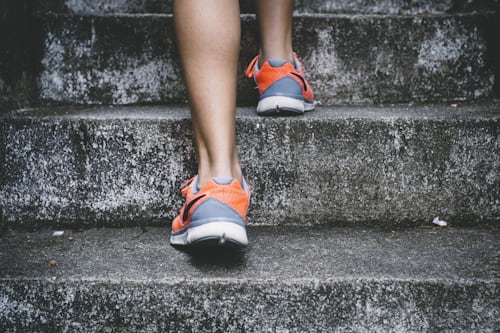Exercise is not just a physical activity; it’s a powerful tool that can transform both your body and mind. In this article, we will explore the numerous benefits of exercise, its impact on physical and mental health, and how it can become an integral part of a healthier and happier life.
The Physical Benefits of Exercise
Regular physical activity offers a wide range of physical health benefits:
1. Weight Management
Exercise helps maintain a healthy weight by burning calories and increasing metabolism. It can also aid in weight loss when combined with a balanced diet.
2. Stronger Muscles and Bones
Physical activity strengthens muscles and bones, reducing the risk of osteoporosis and enhancing overall physical stability.
3. Improved Cardiovascular Health
Exercise is a powerful cardiovascular workout, enhancing heart health and reducing the risk of heart disease, high blood pressure, and stroke.
4. Better Balance and Coordination
Regular exercise can improve balance and coordination, reducing the risk of falls and injuries.
5. Increased Energy Levels
Exercise boosts energy levels by enhancing oxygen and nutrient delivery to body tissues, increasing endurance and reducing fatigue.
6. Enhanced Flexibility and Range of Motion
Stretching exercises and activities like yoga can enhance flexibility and joint mobility.
The Mental Benefits of Exercise
The benefits of exercise extend beyond the physical realm:
1. Mood Enhancement
Exercise triggers the release of endorphins, natural mood lifters. It can reduce symptoms of depression and anxiety, promoting overall mental well-being.
2. Stress Reduction
Physical activity is a potent stress reliever, helping to lower cortisol levels and alleviate stress-related symptoms.
3. Improved Sleep
Regular exercise can promote better sleep patterns, helping individuals fall asleep faster and enjoy deeper, more restful sleep.
4. Cognitive Function
Exercise has a positive impact on cognitive function, including memory, creativity, and problem-solving skills.
5. Enhanced Self-Confidence
Achieving fitness goals and physical improvements can boost self-confidence and self-esteem.
6. Social Interaction
Participating in group exercise activities can provide opportunities for social interaction and community building.
Making Exercise a Part of Your Life
Incorporating exercise into your daily routine doesn’t have to be a daunting task. Here are some tips to get started:
- Find an Activity You Enjoy: Choose activities that you find enjoyable, whether it’s walking, cycling, dancing, or a team sport.
- Set Realistic Goals: Start with achievable goals and gradually increase the intensity and duration of your workouts.
- Create a Schedule: Establish a regular exercise routine that fits your lifestyle, whether it’s in the morning, during lunch, or in the evening.
- Variety is Key: Incorporate a variety of activities to prevent boredom and work different muscle groups.
- Stay Hydrated and Eat Well: Proper nutrition and hydration are essential to support your exercise routine.
- Listen to Your Body: Pay attention to your body’s signals and avoid overexertion or pushing through pain.
- Seek Social Support: Exercise with a friend or join a class or group to make the experience more enjoyable and keep you motivated.
Conclusion
Exercise is a transformative force that benefits both the body and mind. It contributes to physical health by helping manage weight, improving cardiovascular health, and enhancing muscle strength. Additionally, it has profound mental health benefits, reducing stress, boosting mood, and enhancing cognitive function. By making exercise a regular part of your life and choosing activities you enjoy, you can harness its power to lead a healthier, happier, and more fulfilling life.

